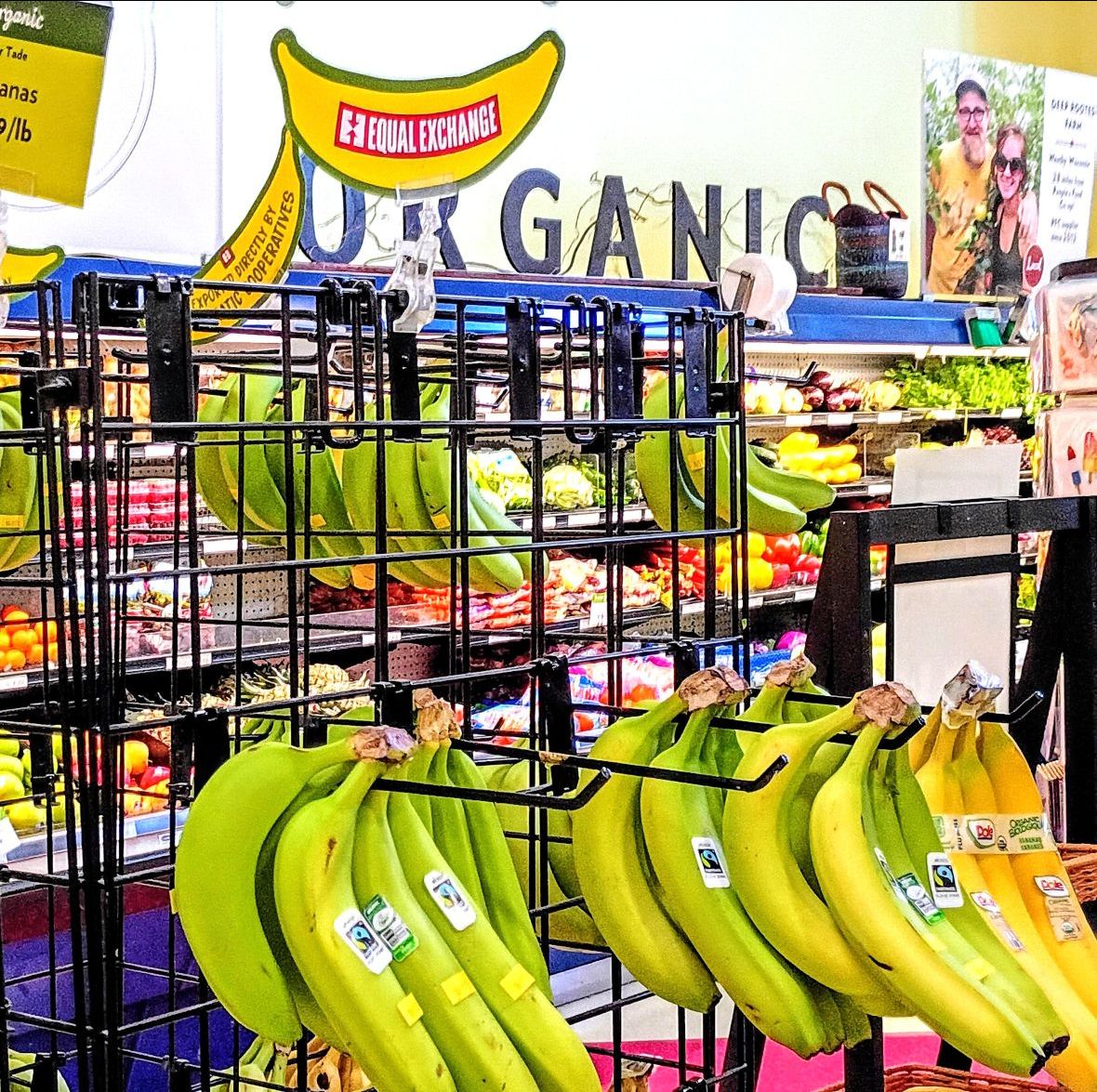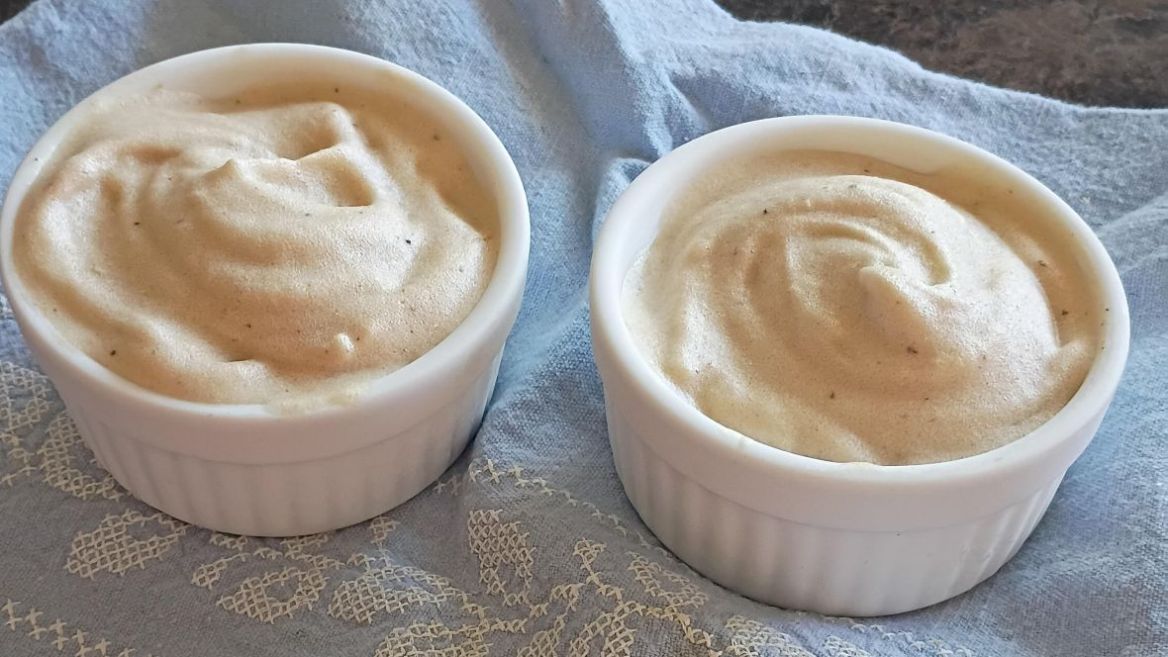Ingredients:
3 very ripe bananas (Mango is another option!)
2 T water or milk (Cream or non-dairy milks work as well.)
1/8 tsp salt
Optional: 1 tsp vanilla extract and /or ½ tsp lemon juice for more flavor
Instructions:
• Place peeled bananas in an air-tight bag and freeze until solid. This limits waste of food and helps the budget!
• Remove bananas from freezer and let them thaw for about 10 minutes.
• Slice bananas and put them and all the ingredients in the bowl of a food processor.
• Process until smooth. (Mixing by hand works, but the food processor gives a creamy texture.)
• For a soft “nice cream”, serve immediately. Or scrape the contents into an airtight freezer safe container. Freeze it for a couple of hours for a firmer treat!
Note: My family enjoys this alternative to banana bread with a drizzle of maple syrup or a few chocolate chips! VLK
If you would like to be notified when we share new recipes, be sure to scroll to the bottom, provide your email address, check the box confirming you are not a robot, click on a few photos to prove it and click subscribe! You will then receive an email after each new post. Remember, we're always looking for new recipes and stories, so keep sending them to ecopact@fspa.org!
Story:
The 2nd Sunday in May (May 11) is World Fair Trade Day. Fair Trade purchases promote Principles of the Franciscan Economy and can be a path to true sustainability and economic justice. Some truly Fair Trade foods are hard to find, but we can gradually choose to make purchases that take a stand for workers, farmers, and business around the world. While, many wonder how tariffs may affect our budgets and the world economy, our brothers and sisters around the world carry the burden of long-held unfair trade practices.
Bananas are an everyday power snack grown in more than 150 countries. Those who grow and harvest bananas face significant obstacles: unfair labor practices, dangerous working conditions, and perpetuation of global inequalities, Authentic Fair Trade produce is a growing part of the market. Equal Exchange, is considered the pioneer and market leader in Fair Trade in the United States. In 1986, 3 young men started importing coffee from Nicaragua despite an embargo against the Sandinista government. It was a bold act of solidarity with Latin American farmers. Since then, Equal Exchange also distributes products such as tea, sugar, avocados, and nuts all produced by farmer democratically led farmer co-ops in Latin America, Asia, Africa and the U.S. Read more about their history here.
Equal Exchange ventured into fresh produce in 2006 with bananas. They are grown by three small farmer cooperatives in Ecuador and Peru that help farmers leverage collective resources and get access to global markets. Rather than being subject to large corporations, they have more control over their business, land, and livelihoods.
The Mission of Equal Exchange is: “to build long-term trade partnerships that are economically just and environmentally sound, to foster mutually beneficial relationships between farmers and consumers and to demonstrate, through our success, the contribution of worker co-operatives and Fair Trade to a more equitable, democratic and sustainable world." A short VIDEO illustrates what they do and how their work is aligned with the10 Principles of Fair Trade by the World Fair Trade Organization
Invitation:
• Reflect on Some Principles of the Franciscan Economy from Laudato Laudato Si.
• Consider who produces the products you buy. Ask for Authentic Fair Trade products at your supermarket, food co-op or café.
• Serve Fair Trade coffee, tea or hot cocoa at your home or place of worship.
• Plan a Fair Trade Fundraiser for your school or organization that use Equal Exchange coffee or their other fair trade products.
• Learn more about bananas, the most consumed fruit on the planet from the Food Empowerment Project.
• Read more about World Fair Trade Day, an opportunity for citizens, advocates, policymakers and organizations to amplify how Fair Trade can be a pathway to true sustainability.
Photo below taken at People's Food Co-op, La Crosse, Wisconsin






Post a Comment